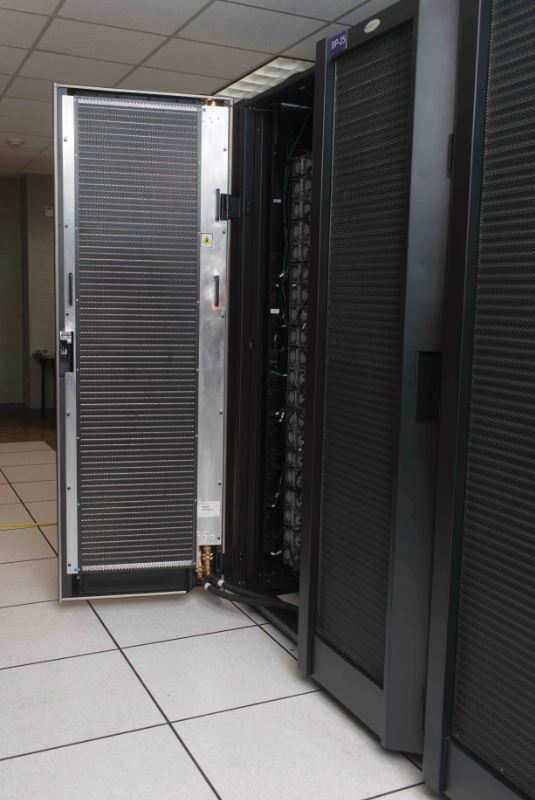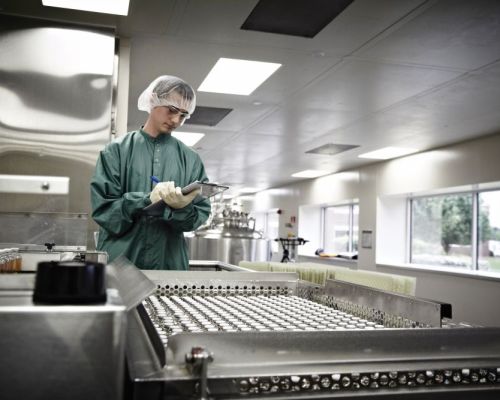Clemson University Information Technology Center
Overview
The Clemson University Information Technology Center (ITC) is the campus’s primary data center, housing the majority of Clemson’s research and production systems. It provides critical technology service for the university’s faculty, staff, students and researchers, as well as other state agencies, fellow research universities and corporate partners. Over the past several years, Clemson has implemented a strategic improvement plan, in partnership with the Energy Services team from Duke Energy, installing cutting-edge equipment to emerge as one of the top five public academic supercomputing facilities in the country and as a Center of Excellence for Next Generation Computing
Goals
The university wanted to transform its 20-year-old system at the ITC into a high-performance computing system that would position the school as a leader in the industry. It needed to increase the speed and agility of its data center and university-wide technology systems, including improvements to its electrical and mechanical systems and equipment, as well as implement a reliable backup power system.
Obstacles
The ITC facility was in need of a major overhaul to keep up with the ever-increasing demand for server and storage space, as well as computer horsepower for research endeavors. As more equipment was added, the electrical and thermal loads exceeded the installed capacity. Clemson needed a way to install new and innovative technology to meet both immediate and future demands, as well as a way to gracefully retire life-cycle aged equipment. And it also needed a partner who could help accomplish these tasks while meeting the 24-hour demands and mission of the facility. Duke Energy’s Energy Services team, who is well-versed in mission-critical operations and technologies, and who helps businesses control costs while maintaining uptime and prolonging the life of their equipment, emerged as a solution.
“Partnering with Duke Energy has allowed Clemson to pursue those goals important to us – reliable systems for our faculty, staff and students; a top-tier supercomputing facility to enable world-class research; and the agility to meet the ever-changing needs of the IT world.” – Jay Harris, Director of Data Center Services and Facilities, Clemson University
Opportunities
The Energy Services team from Duke Energy partnered with Clemson to overcome these obstacles and provide electrical and mechanical systems to the computer room, enabling Clemson to invest in state-of-the-art servers and data storage systems that helped them transform their data center. With this help, Clemson accomplished its goals, advanced its technology and achieved a ranking of 108 in the top 500 super computing sites in the world.*
Transformation
Together, Energy Services and Clemson developed a comprehensive plan to address the university’s initial technological needs and then created a road map for future growth and expansion to ensure that Clemson retains its best-in-class status. There have been three major phases to these improvements. The first two phases focused on upgrades to the entire raised floor space using a hot and cold aisle design. The third phase focused on providing a more efficient method of removing heat at the point at which it is generated.
PHASE ONE:
The first of many improvements was the installation of two uninterruptible power supply (UPS) systems and a chilled water plant. Replacing the existing, older UPS system provided continued stability to prevent downtime, as well as increased energy efficiency.
- Replaced two legacy 200 kilovolt-amp (kVA) UPS units with new 225 kVA and 750 kVA UPS units (this second UPS unit tripled the capacity)
- Installed a 250-ton air to water chiller and eight computer room air handlers (CRAHs)
- Added multiple PDUs
PHASE TWO:
In the second phase of partnership with the university, Energy Services installed additional UPS equipment, chillers and another generator to meet the needs of high performance computing.
- Replaced legacy 1 megawatt (MW) generator with a new 1 MW generator, backing up equipment from phase one
- Added a second delivery and installation with the following equipment:
• A new 2.5 MW diesel generator, transfer switch and bus duct to new 4000-amp switchgear
• Two 750 kVA UPS units were added
• Six 300 kVA PDUs
• Two 250-ton chillers were added to the phase one chiller in an N+1 configuration
• Six CRAH units
• Completed a chilled water loop running through the facility

PHASE THREE:
The technology change of using graphics cards for computational work increased power requirements and exceeded the cooling capabilities of traditional air-flow methods. Adding a tertiary chilled water loop and employing rack heat exchangers more efficiently neutralized this excessive heat load, expanding the useful capacity of the existing system and increasing energy efficiency.
- Replace two older 200 kVA PDUs with two new 200 kVA PDUs
- Installed two 15-horsepower pumps with variable frequency drives for tertiary chilled water loop
- Added 10 rear door rack heat exchangers
- Rewired phase one chiller and pumps to provide redundancy in the event of a generator failure
Conclusion
Energy Services provides more than backup power systems. At this facility we are providing the cooling and power to the servers. This has enabled Clemson to focus on continually upgrading the hardware and software in this facility and on their mission of providing IT services in a reliable and resilient infrastructure
How We Can Help You
Duke Energy’s Energy Services team can help advance your core business by improving your financial position, providing better operational performance and lowering your risk.
These nonregulated products or services are not part of the regulated utility services offered by Duke Energy Carolinas (“DEC”) and are not in any way sanctioned by the North Carolina Utilities Commission or the Public Service Commission of South Carolina. Purchasers of these products will receive no preference or special treatment from DEC. A customer does not have to buy these products or services in order to receive the same safe and reliable electric service from DEC. These goods or services may also be available from other nonaffiliated suppliers. This message is paid for by the shareholders of Duke Energy.
*Source: www.top500.org



